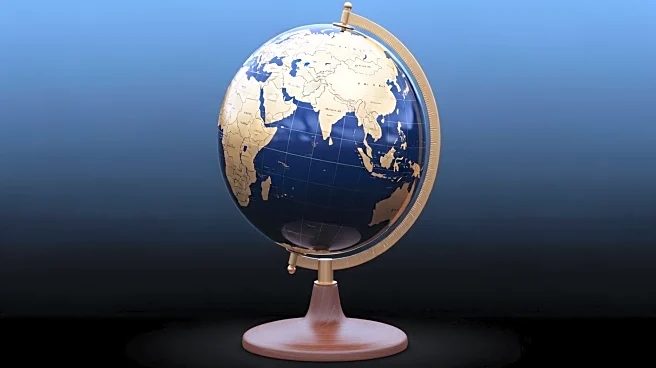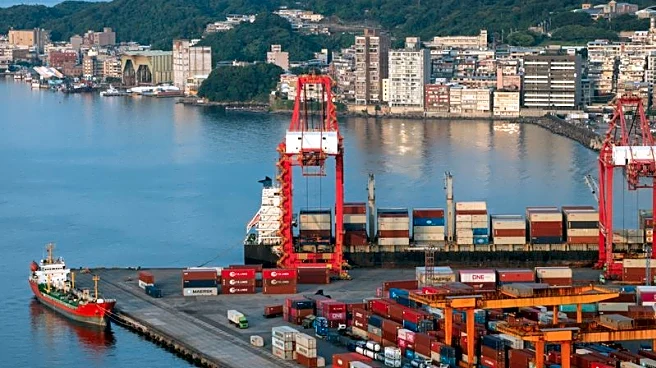What's Happening?
President Trump has issued a threat of potential military action against Nigeria, citing the country's alleged failure to protect Christians from violence. In a social media post, Trump instructed the Pentagon to prepare for possible action to eliminate
'Islamic Terrorists' in Nigeria. This announcement follows Trump's designation of Nigeria as a country of particular concern due to severe violations of religious freedom. Nigeria's President Bola Ahmed Tinubu has denied these accusations, asserting that the country is committed to safeguarding religious freedom for all citizens. The situation has escalated tensions between the U.S. and Nigeria, with Trump also threatening to cut off aid to the West African nation.
Why It's Important?
The potential military action and aid cut-off could significantly impact U.S.-Nigeria relations and the broader geopolitical landscape in West Africa. Nigeria, with a population of approximately 220 million, is a key player in the region and a major recipient of U.S. global health funding. The threat of military intervention could strain diplomatic ties and affect ongoing U.S. aid programs, which are crucial for Nigeria's health sector. Additionally, the move could influence U.S. domestic politics, as it aligns with President Trump's focus on religious freedom and his administration's foreign policy priorities.
What's Next?
The situation may lead to diplomatic negotiations between the U.S. and Nigeria to address the concerns raised by President Trump. The Nigerian government may seek to demonstrate its commitment to protecting religious groups to avoid potential military action and maintain U.S. aid. Meanwhile, the Pentagon's preparation for possible action suggests that military intervention remains a viable option, depending on Nigeria's response. The international community, including human rights organizations, may also weigh in on the issue, potentially influencing the outcome.
Beyond the Headlines
This development highlights the complex interplay between religious freedom, international diplomacy, and military intervention. It raises ethical questions about the use of military force to address religious persecution and the potential consequences for civilian populations. The situation also underscores the challenges of balancing national security interests with humanitarian concerns in foreign policy.

















